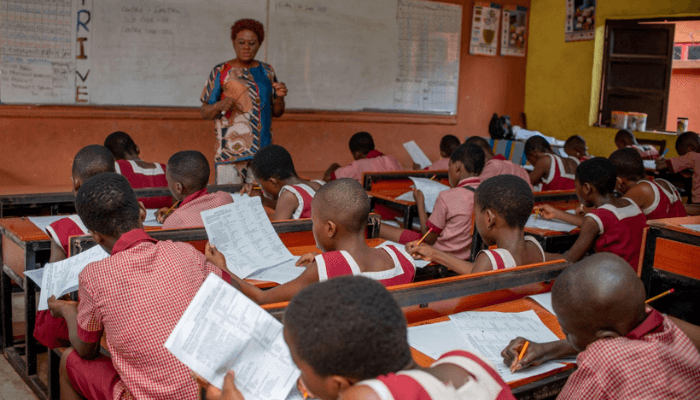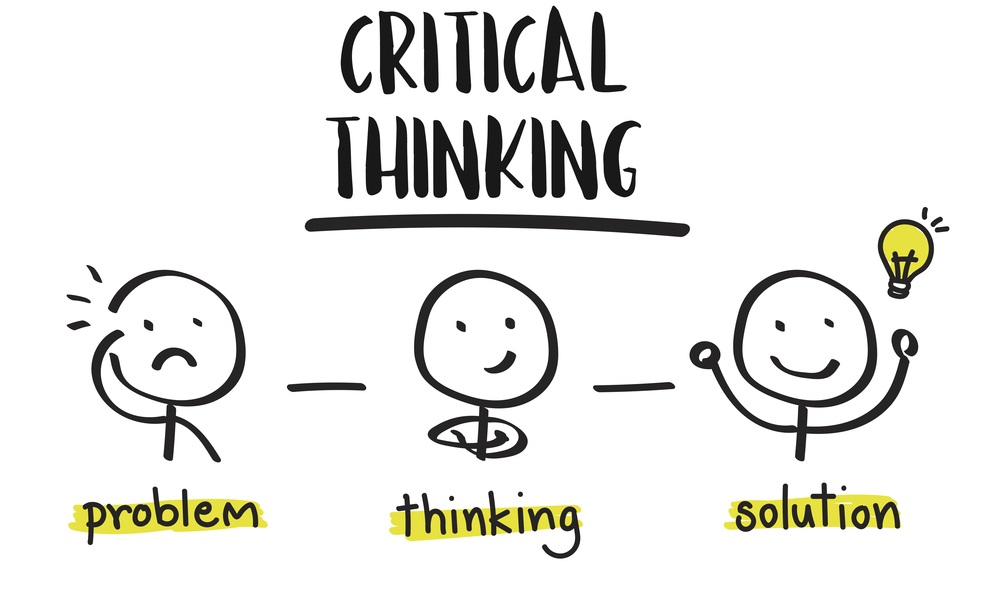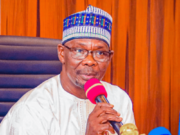In today’s fast‑evolving world, where change is the only constant, Nigeria stands at a crossroads. Our classrooms remain tethered to an archaic model—one that favours memorisation over innovation, regurgitation over reasoning. It is time for a shift.
Table of Contents

The Problem with Rote-Centric Classrooms
Waking up to reality, our current education system teaches children to memorise, not to think. Students spend formative years cramming definitions and copying what’s on the board—preparing for exams that reward recall, not understanding. Yet, knowledge is fleeting when it’s only stored, not interrogated.
This approach has far-reaching consequences. We produce graduates who ace exams but are incapable of navigating life’s unpredictability. Employers lament this reality, chronicled: they encounter graduates promising grades but lacking adaptability, creativity or even basic problem-solving competence. Our economy suffers as a result.
The Power of Critical Thinking and Problem‑Solving
Critical thinking is not merely a luxury—it is among the top ten skills demanded in the 21st century. At its core, it enables learners to analyse facts, evaluate assumptions, and make reasoned judgments.
Similarly, problem-solving nurtures self-directed learning, perseverance, and applied knowledge. Educational research shows that project-based and inquiry-oriented methods yield dramatic results, including advances in critical reasoning and closing performance gaps.
By embracing these approaches in classrooms, we give children agency, enabling them to question, to create, to evolve.
Real‑World Examples—Living Proof of What Works
Across Nigeria, schools are already charting a new path.
- In Lagos, one secondary school swapped formula drills for market-day simulations. Students calculate discounts, tally profit margins, and learn math through real-life transactions—a shift that sparked renewed student zeal and comprehension.
- Over in Enugu, the Smart Green School model brings experiential learning to life: pupils develop water filtration systems and community gardens, blending real science with tangible outcomes.
- KEY Academy—founded in 2019 in Lagos—has taken project-based learning to new heights. Students from toddlers to teens work on community-focused tasks; the school’s innovation landed it among the top 10 finalists for the World’s Best School Prize in Innovation in 2025.
Why Now? Why Critical Thinking?
Nigeria’s demographic dividend is at risk unless matched with quality learning. Our youth must be equipped not just to fill desk jobs but to create them, to lead change. Rote learning restricts their agency—it scales mediocrity.
Moreover, our curriculum often fails to reflect 21st‑century needs. Basic life skills like emotional intelligence, financial literacy, and civic engagement are glaringly absent in even secondary-level offerings. A child can memorise an agriculture fact but never learn how to start or sustain a farm.

Bridging Gaps—Teacher Training, Policy, and Resources
The shift cannot happen without systemic support.
- Teacher Professional Development: Less than 20% of teachers (even in progressive states like Lagos, Abuja, Kwara) have been trained to impart the Four Cs—Critical Thinking, Communication, Collaboration, and Creativity.
- Curriculum Reform: We must integrate inquiry-based learning, real-world projects, and life skills into the syllabus, rather than merely expanding existing rote-heavy modules.
- Technology & Equity: Leveraging IoT, robotics, and digital learning can level the field in underserved areas and cultivate logical reasoning through interactive content.
Cultural Shift—From “Teach to Pass” to “Teach to Transform”
Encouraging active learning begins with reimagining the roles in the classroom: learners become inquirers, teachers become facilitators. According to Leo Igwe, we must move away from teacher-centred patterns and towards subject-agnostic questioning, where students generate knowledge through curiosity.
This shift stands to ignite a paradigm change—from producing passive note-takers to critical citizens.
Voices from the Ground: Real Nigerians, Real Insights
On social platforms, the sentiment is palpable:
“Not really… we just crammed shit and never learned how it applied to real life.”
“Education: … I would also encourage students to think critically and ask questions, as to why things are the way they are.”
These voices underscore not idealism, but lived experience.
A Path Forward—What Must Be Done
- Policy Reorientation: Educational success metrics must go beyond grades to include critical thinking and problem-solving indicators.
- Curriculum Redesign: Integrate 21st-century competencies across subjects, from primary through tertiary levels.
- Teacher Empowerment: Launch nationwide training platforms (digital and in-person) focusing on inquiry-based pedagogy.
- Resource Allocation: Commit funds for smart classrooms, robotics kits, and project-based setups, especially in rural areas.
- Public Buy-In: Engage parents and communities to shift emphasis from examination success to lifelong learning.

Conclusion: Nigeria’s Future Hinges on Our Ability to Think
Memorisation will not sustainably deliver prosperity. Only through nurturing young Nigerians who question, design, adapt, fail, and create can we build a workforce fit for the future world.
The real question is not whether we can afford to transform our educational system, but whether we can afford not to.
Join Our Social Media Channels:
WhatsApp: NaijaEyes
Facebook: NaijaEyes
Twitter: NaijaEyes
Instagram: NaijaEyes
TikTok: NaijaEyes
READ THE LATEST EDUCATION NEWS








































